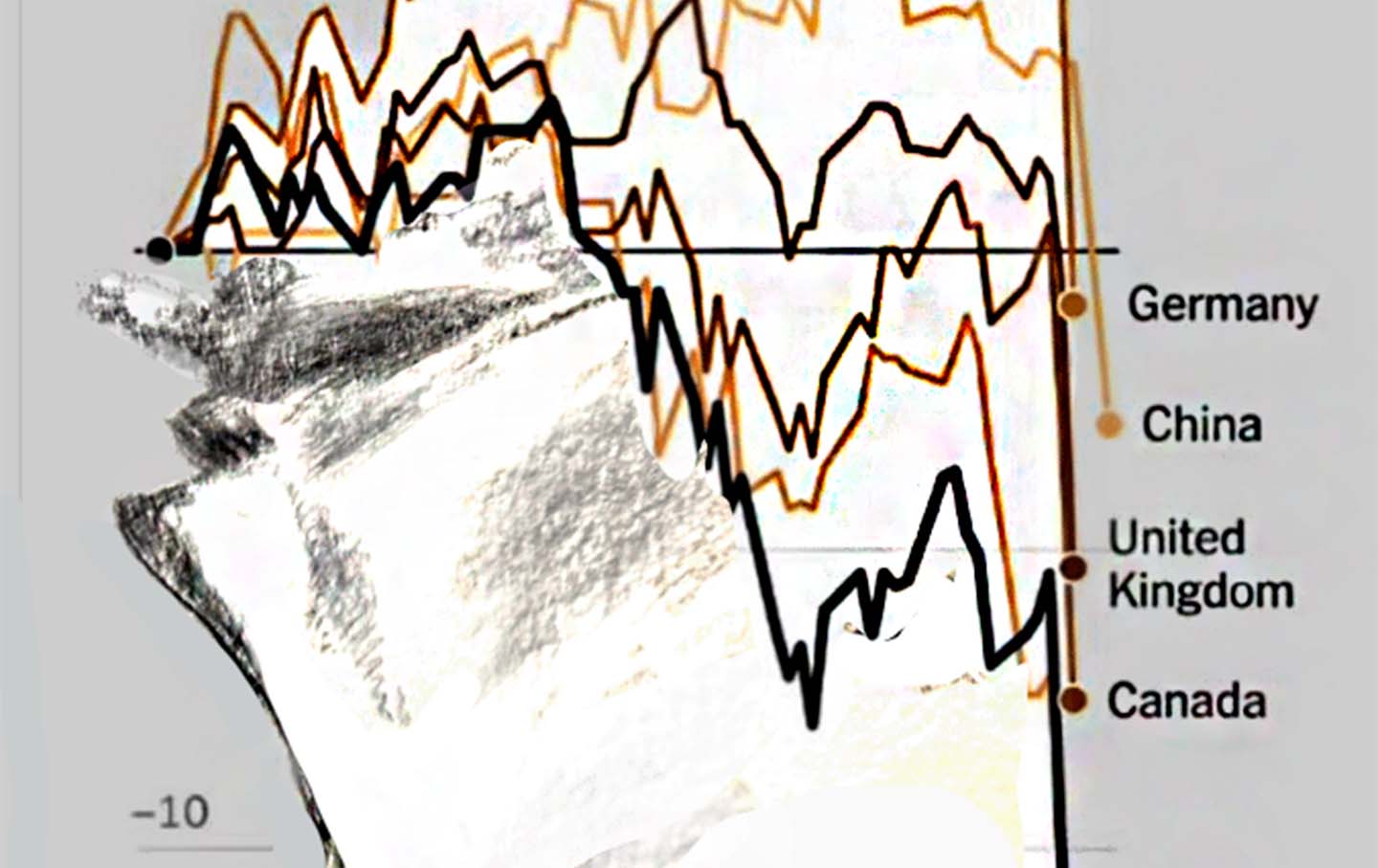Tim Walz Brings the Democratic Ticket Back to the Party’s Roots
Vice President Harris’s running mate is a heartland governor who has championed Minnesota’s working class. It’s a departure from the party’s long slide toward Beltway elitism.

Minnesota Governor Tim Walz
(Tom Williams / CQ Roll Call via AP Images)In naming Minnesota Governor Tim Walz as her running mate, Democratic presidential nominee Kamala Harris has begun to redress a major deficit in the party’s leadership. After a generation-plus of recruiting Ivy-matriculated coastal knowledge professionals to lead the party, the Democrats have laid aside that dead-end class geography in favor of a prospective vice president who has logged decades as a union member after graduating from the Minnesota State Colleges and Universities system.
It’s true that Joe Biden was educated at the University of Delaware—but it’s also true that Biden duly proceeded to Syracuse University Law School before launching his political career and embedding himself within the Delaware business establishment. Walz, amazingly, is the first Democrat on a presidential ticket in half a century not to have attended law school—going back to the 1976 run of Naval Academy physicist Jimmy Carter. The longtime high school social studies teacher and principal is also the first former long-term union member on a presidential ticket since former Screen Actors Guild president Ronald Reagan’s 1980 campaign. (Technically, Reagan’s own vice president and later successor, George H.W. Bush, logged a weeks-long stint as a member of the United Steelworkers during his apprenticeship in the oil industry, but it was a footnote to his later career as a patrician boss.)
As we sized up the presidential prospects in 2019, veteran campaign reporter Walter Shapiro referred with dismay to the Democrats’ emergence as the “Advanced Placement” party—a development that paralleled the broader collapse of union organizing in the private sector workforce and the party’s embrace of global free-trade policies at the dawn of the Internet age. As the Democratic Leadership Council doggedly worked to remake the party’s image as “pro-business,” the party’s nominees parroted a fatalist vision of the working class’s inevitable marginalization as Information Age capitalism bestrode the globe. During the 1992 primary cycle, candidate Bill Clinton won pundit plaudits for empathizing with the plight of a displaced worker in New Hampshire by proclaiming “I feel your pain,” but in office, Clinton proceeded to inflict all sorts of pain on working Americans, from the passage of the North American Free Trade Agreement to a new corporate-friendly set of accords within the General Agreement on Tariffs and Trade to an executive order extending most-favored-nation status to China in the new American trade regime.
I can picture Walter, who worked with me at The New Republic, and who died just as Joe Biden was about to relinquish his reelection bid, greeting the news of Walz’s selection with his trademark puckish grin; Walter was a New York transplant to Michigan who mounted a quixotic campaign as an anti-war candidate for Congress there in the 1960s. That experience gave him a firsthand appreciation of how political figures can come across as abrasive know-it-alls without some direct appreciation for the struggles of the constituencies they seek to represent.
After a decade’s worth of conspicuous fretting over the party’s ability to connect with members of the heartland’s white working class, the Democrats now can point to a leader who knows something of that community’s daily struggles and has parlayed that knowledge into striking political success. As Nation contributor and author of the Ettingementum newsletter Josh Cohen has written, Walz won reelection to his seat in Minnesota’s traditionally Republican-leaning first congressional district four times, in a political environment that’s grown increasingly hostile to Democratic House candidates:
He survived the 2010 Republican landslide by a five-point margin that, very impressively, still outran Obama’s 2008 margin in the district. He would win by 15 points in 2012 while Obama only won his district by one point, and would come out of the 2014 red wave unscathed, winning by 9. But his most impressive victory of all may have come in 2016, when he survived a gargantuan 17-point rightward shift in his district to hold on to his seat. Every single one of those performances [was] stellar, and they paint a picture of a political who, at least for a time, had a very real appeal in a working-class district that most other Democrats couldn’t even come close to.
It bears noting that Walz didn’t achieve all this on the basis of personal charisma and vibes; prior to his maiden congressional run in 2006, he matriculated at Camp Wellstone, the political training operation run by the children of the late Minnesota Democratic senator Paul Wellstone to sustain the senator and his wife, Shelia’s legacy. In Congress, Walz—the highest-ranked enlisted soldier to win a House seat—became known as a successful advocate for veterans, while also opposing the escalation of the war in Iraq, and a supporter of healthcare reform. Significantly, he voted against the 2008 Troubled Assets Recovery Program in the wake of that year’s financial meltdown. His service on both the Veterans Affairs and Agriculture Committees likewise showcased his focus on constituent services, over and against the sexier preoccupations of his coastal peers in the Democratic caucus.
After he was elected governor in 2018, Walz likewise focused on basic quality-of-life and income supports as the foundation of his administration. With a narrow one-vote majority in the state legislature, Walz was able to enact a host of sweeping, universalist measures last year, ranging from protections of reproductive freedom to voting rights protections to landmark climate initiatives to the state’s largest-ever increase in its education budget, including a free school-lunch program. Nor, contrary to established pundit lore, has Walz’s robust set of social democracy achievements come at the expense of members of vulnerable identity groups. Walz famously launched a student group showing affinity for LGBTQ students while he was a football coach at Mankato High School, and has signed an executive order supporting gender-affirming care in the state.
Mainstream pundits are already bemoaning Vice President Harris’s pick as a sop to the Democrats’ left-leaning base at the expense of the hard-realist calculation of nailing down the must-win state of Pennsylvania, where Walz’s chief rival, Josh Shapiro, is a popular governor. Yet this is a typically zero-sum bit of election-map myopia, which harks back to the party’s fateful rejection of former DNC chair Howard Dean’s 50-state strategy at the moment that Walz was launching his political career. The existing movement momentum behind the Harris campaign is a prime opportunity for Democrats to expand the party’s base, rather than to double down on the existing configuration of partisan sympathies and white-knuckle their way through another election cycle. Dean’s pitch back then was to seek to be competitive in every district and state, no matter how red their past voting records may be—thereby, he argued, the party would both extend its national appeal and cultivate an effective homegrown talent pool in the districts then slipping away from its reach. Rahm Emmanuel, who then headed the Democratic Congressional Campaign Committee, took the standard DLC and neoliberal party line and maintained that the party should prioritize investing in the races where it stood an immediate chance of victory. Emmanuel prevailed, and Dean’s proposal was mothballed. Yet studies of the Democratic Party’s competitiveness had it adopted the 50-state strategy conjure a dramatically different version of the electoral map, one in which the overlapping debacles of the Tea Party and the MAGA movement would have been significantly reduced.
Tim Walz’s nomination alone won’t reverse this baleful history, of course. Yet it’s still a long-overdue course correction, and it speaks well of Vice President Harris that she’s summoned the hard-headed political realism out of a party in terminal elite denial to undertake it.
NOTE: This article has been corrected to include mention of President George H.W. Bush’s brief membership of United Steelworkers.








